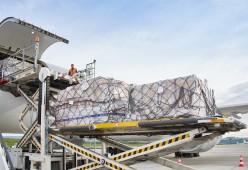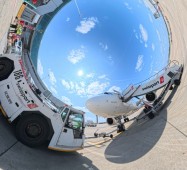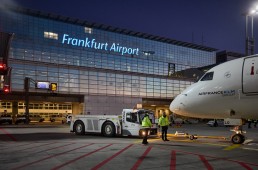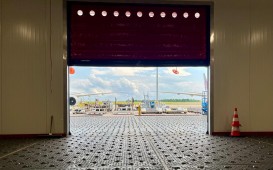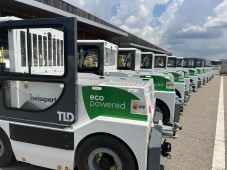CLIMATE CHANGE
At Swissport, we have a 10-year plan for decarbonization, collaborating with our ecosystem to inspire and implement change. Across our workforce of 60,000 people in 45 countries worldwide, we aim to adapt the equipment they use and the way they work to drive our business transformation.
In 2023, we made a significant commitment to our carbon emissions strategy. We committed to both near-term and net-zero targets through the Science Based Targets initiative (SBTi), joining more than 5,000 other companies in meeting the initiative’s high standards for carbon reporting. Through our commitment, we pledge to establish a detailed path to reduce our climate emissions in line with the goals of the Paris Agreement.
Moving forward, we are focusing on two key priorities: enhancing our reporting and detailing our carbon reduction plan. Our emissions reporting, based on an annual GHG assessment, ensures transparency and meaningful comparisons across years.
Refining our carbon reduction plan involves meticulous reviews for each scope. For Scope 1, a robust plan aims for 55% electrification of our motorized fleet by 2032. In Scope 2, we actively seek a strong partner in the energy sector for a transition to green electricity, collaborating closely with airports and primary energy suppliers. Initial successes include Liège, Belgium, and Nairobi, Kenya, where we already consume electricity from solar panels on our cargo warehouses.
Focusing on Scope 3, our attention turns to our refueling business, leveraging our influence for fuel transport and logistics. Our aspiration is to have our comprehensive carbon reduction plan, along with specific targets, externally validated by SBTi within the next two years.
Going Electric
Eco-Powered Fleet
Increasing climate change awareness has brought a sharper focus on the use of fossil fuels. Swissport is aware of its responsibility and is increasingly using electrically powered and hybrid GSE (eGSE) instead of fossil-fuel powered vehicles.


